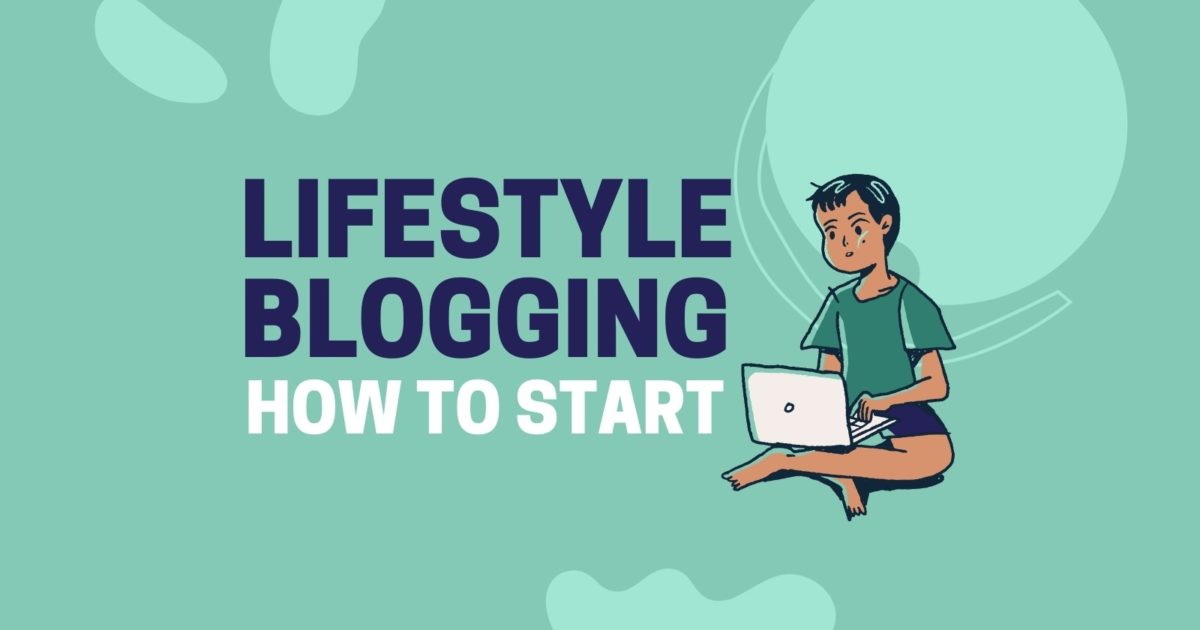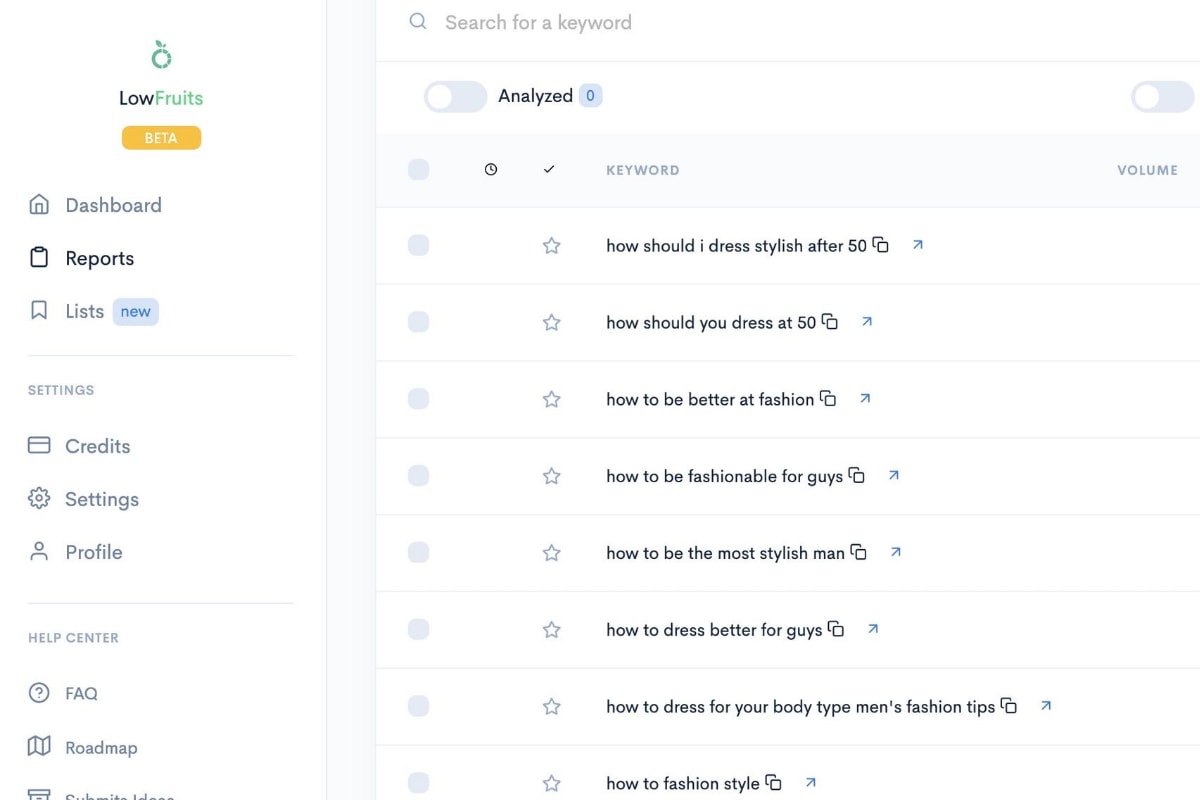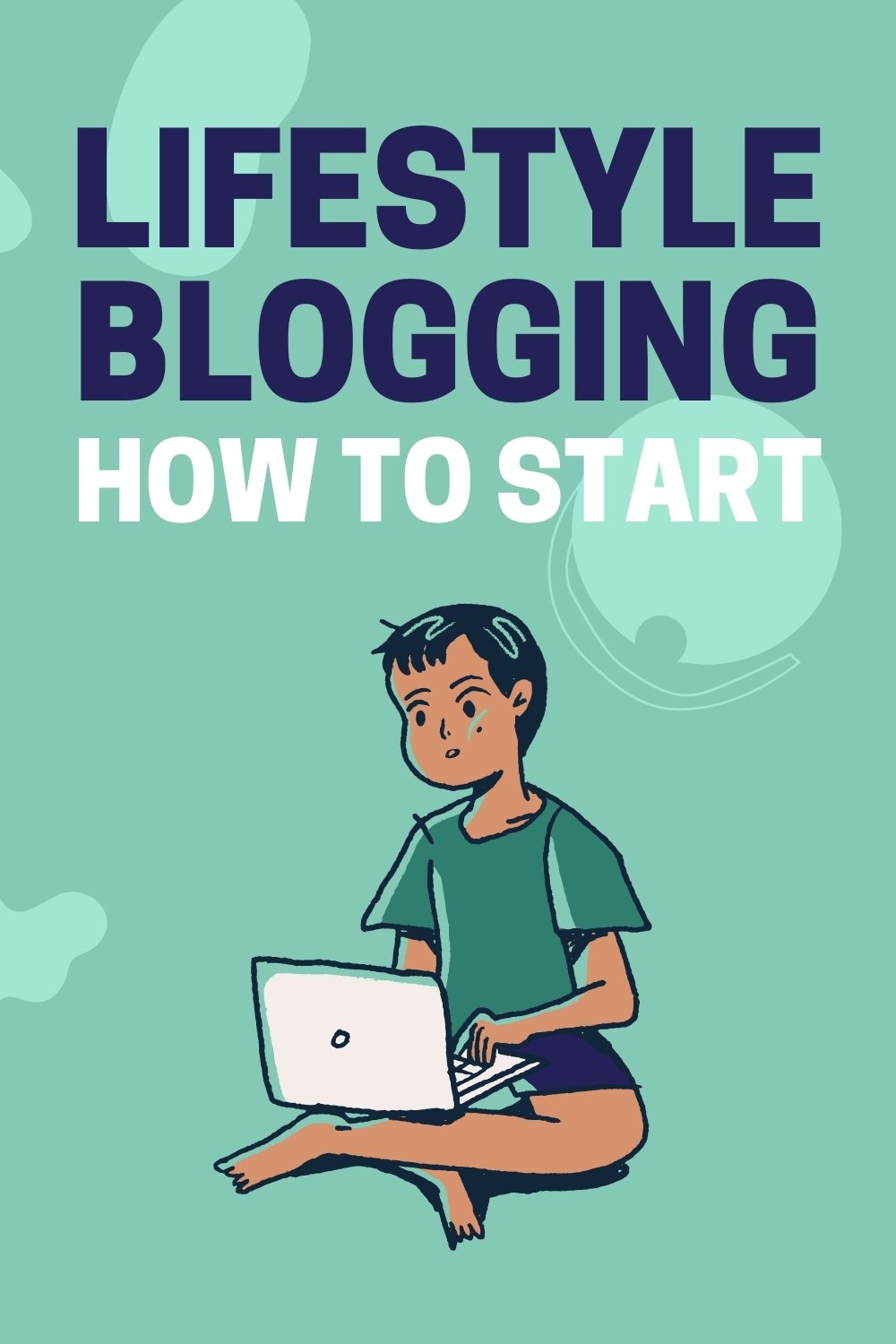First of all, a definition of lifestyle blogging
What is lifestyle blogging?
Lifestyle blogs are websites that discuss different aspects of lifestyle. Often, the author's lifestyle is the focus, but it doesn't have to be. A lifestyle blog is loosely defined as a blog that focuses on topics that interest the writer. As a result, any form of blogging can fall into this category.
Lifestyle blogs do not have to be personal blogs and do not have to share personal information and daily life details. But sharing personal information can make the blog more authentic and in many cases, contribute to its growth. Generally, lifestyle blog audiences want posts related to their own experience, but there are plenty of exceptions. When it comes to health and fitness or food, for example, some people prefer topics that do not include personal experiences or opinions.
Topics can include aspects of non-traditional blogging such as product reviews and features on other bloggers. Bloggers in this niche cover the gamut from mommy blogs to professional blogs to quirky hobbies like pets or tea.
The most successful lifestyle bloggers have a passion for their topic, and it shows in their writing.

Lifestyle Blog ≠ Personal Blog
Avoid making your blog a personal blog unless you already have a following on social media or your lifestyle is so interesting to people that they will follow you no matter what you write. If that’s you, congratulations. For the rest of us, writing about personal stuff will not grow our blog traffic or social media following.
People only care about themselves and what they can get from our blog. They might follow Kim Kardashian simply because of who she is, but I’m guessing that’s not you. If it is, Hi Kim!
Answer questions, discuss topics that people are curious about, write how-to articles, and do in-depth reviews. But keep photos of your breakfast and how you’re feeling today off the blog. That might work on social media but it certainly won’t help you get traffic from Google or Pinterest.
And it might turn off people who are happy enough to know about you, but not everything about you.
There’s a fine line between friendly and in-your-face.
Who blogs in this niche?
Lifestyle blogs are generally created by people who have special insights into a specific subject he or she is passionate about.
A lifestyle blog is a perfect venue for people seeking to monetize their passion or become more knowledgeable about their chosen subject. Think of them as ways to not only improve your skills, but also grow your experience, share your knowledge with others, and make money at the same time.
How to do Lifestyle Blogging
Lifestyle blogging is about answering people's questions in an informative and unique way. Think about how people search on Google. People use Google as the answer engine for their queries relating to fitness, food and recipes, fashion, DIY, travel, house renovations, arts and crafts, and other topics that fit perfectly with the lifestyle blogging niche. Here's an example:
“How to save for travel”
Lifestyle blogs are all about the blogger’s unique experiences and interests. They appeal to a very niche audience who are looking for a specific product or solution to a specific problem. Lifestyle blogs can be about travel, health, food, fashion, pets, you name it! They do not have to be centered around blogging itself, although many are.
Why are Lifestyle Blogs so popular?
Lifestyle blogs are popular for several reasons
- They are usually based on the writer’s interests. Writing about fashion, sports, travel, gifts, weddings, or fitness is easier when you’re passionate about the topic or it’s a hobby you regularly enjoy.
- It’s relatively easy to get started and if you’re writing about products, it’s likely you already own the products.
- Becoming an influencer in any space is not only something many people aspire to, it’s a legitimate way to make money in 2021 (and probably for many years to come).
Twenty years ago, few people would have thought that today, almost anyone can make money writing about the things they enjoy talking about for free anyway.
Social Media and Lifestyle Blogging
Lifestyle blogging is one large area (niche-specific) where social media can be worth the time and effort.
The key to social media success is choosing the right platform(s) and the right growth strategies.
Pinterest is best for lifestyle blogs and e-commerce websites. Not so great for local businesses, for example.
Generic posting of content on Twitter might work for some large corporate brands but not for smaller niche bloggers and lifestyle blog owners.
TikTok can be an excellent channel for reaching new audiences and working with other influencers.
Note that many people put Pinterest into the “social media” category. However, the visual search engine is not a social media platform. How many people do you follow on Pinterest? Do you know how many followers you have?
Pinterest, like Google, is a place for people to get answers to questions, like “how to style curtain bangs” (whatever that means), “how to make paper flowers”, “how to travel on a budget”, and “how to get fit at home”.
Twitter analytics & growth tools:
Tweet Hunter – Get personalized tweet suggestions from a custom AI regularly, rewrite tweets you like, and get ideas and content for threads. Tweet Hunter's time-saving scheduling and automation capabilities help you stay visible and maximize the ROI of each tweet you write. This is a powerhouse of a Twitter growth tool.
BlackMagic – Use BlackMagic's powerful automation and growth tools to grow your audience, and communicate better and easier. Track your consistency, followers, engagements, etc. Manage engagements at scale. Get tweet inspirations every day. Organize your tweets into categories. Draft, Schedule, Publish, Engage.
More tools to grow your Twitter following
TikTok analytics and Growth tools:
Exolyt – Exolyt is a TikTok analytics tool that lets you track everything from your influencers to your competition. Learn about what they have posted in the past and who they have mentioned. It's an all-in-one tool that gives you everything you need to succeed on TikTok.
Analisa – Analyze a profile, hashtag, or your followers to get insights about how your content is performing. Analisa helps you decide what content to post by analyzing your most popular and viral content. Additionally, it displays demographic information about those who follow you and their authenticity.
Web Hosting
Lots of bloggers and affiliate marketers will tell you one or two things about setting up your blog. And these recommendations usually involve some combination of website builders like Wix, Weebly, SquareSpace or Shopify, and web hosting companies like BlueHost.
If you're starting a blog and you take one piece of advice, I hope it's this: avoid all of the services in that previous sentence. They are not the best choices for you. People who promote these products are misinformed, misguided, or even misaligned with your best interests. They get paid commissions for recommending these products and often don't use them in their own businesses
The only reason people recommend BlueHost is because of the huge affiliate commissions the company offers. Think about it, if you spend $60 a year for hosting and the person who recommended it to you gets $50 of that, you are essentially getting a $10/year hosting. Even $60 a year is pretty cheap and you can’t expect a good experience or customer service for this. Get a good web hosting company if you’re serious about monetizing your blog and growing your audience.
I recommend WPX* or Cloudways*. I use Cloudways for everything (business and personal)
*And yes, those are affiliate links, but I use these products myself.
What are good WordPress Themes for a lifestyle blog?
Now you're asking the right questions. And just to confirm that WordPress is the right choice of blogging platform.
Any theme will work but I recommend using a premium theme from a reputable developer. And if you want your blog to be successful long-term, set it up for success at the start. And that means getting an SEO-friendly, fast, easy-to-use theme. Many new bloggers waste hours searching for the most beautiful WordPress theme. This is a mistake. Most people will read your content on mobile devices where the writing is front-and-center.
All the beautiful menu touches and header images are not visible or ignored on mobile. Content is the most important thing. A super-customizable, “does everything”, gorgeous WordPress theme is not a priority at this stage.
Changing WordPress themes is a bit of a pain so it’s best to start off on the right foot. Avoid the free themes to stay on the side of proper security and best practices.
These three WordPress theme developers offer excellent products that will last you for your entire blogging journey. And they don't use complicated page-builders or weird code that prevents you from switching themes should you decide to do so in the future.
- Astra – Highly customizable without sacrificing speed and accessibility, fast, and great value. Try the Food Blogger & Influencer, Travel Blogger & Influencer, and Online Health Coach templates
- DIVI – this theme has regained its status as one of the best WordPress themes in 2022. Beautiful and elegant.
- GeneratePress – lightweight (fast) but powerful, inexpensive, and minimalist. Check out the Mentor, Digital Creative, and Vibe templates
How to make money
Now we’ll move on to the juicy bit, how to monetize your blog. It’s all very well spending hours working on something you love but why not be compensated for it? In fact, some bloggers start their websites with the intention f creating businesses or profitable side hustles from their passions or hobbies.
There’s nothing wrong with that. Content creators should be compensated for their work. After all, you’ll be providing a service to people for free (if you’re blogging) and the value you give them is worth a lot of money to some people.
There are several ways to make money from a lifestyle blog.
1. By placing advertising on blog posts and pages
2. By accepting sponsored posts on your website
3. By incorporating affiliate links into your content
4. By selling courses, digital products, or physical products through the website

Advertising
While there are disadvantages to placing display ads on your site, the revenue generated is completely passive if you use an ad network like Mediavine. Depending on your niche, you could be making $1500 a month from 50,000 page views with optimized ads by a reputable ad network. The disadvantages are that many people dislike advertising and the software that delivers the ads can make your website performance suffer.
Sponsored Content
Not my favorite method of monetizing but a popular one with bloggers who have an engaged, trusting audience. Sponsors pay you to place content on your website that promotes their products. This sounds sleazy but it doesn’t have to be. Ethical bloggers only accept content that has honest intentions and serves the blog's readers. They also prefer to work with sponsors of products that they use.
If you actively use a product or service and rave about it to your friends, you could write a review. You could also accept a how-to article or
- Sponsored photos
- Blog posts
- Product placement (in a recipe or fitness video, for example)
Sponsored posts are also very popular on Facebook, Instagram, and Twitter. Some advertisers and partners prefer blog posts, especially on lifestyle blogs with traffic, and others prefer posts on social media, especially when the account owner has a highly engaged audience.
Affiliate Marketing
The concept of affiliate marketing was pretty much unknown before the 90s and even into the last decade, few people understood its value. These days, most people with a presence on the internet know what affiliate marketing is. And the public is generally educated on how bloggers, influencers, and marketers promote products in return for affiliate commissions.
The recent increase in understanding is due in part to the ease of getting started as an affiliate and in part due to the bad/unethical behavior of influencers and the publicity this generates.
Again, you don’t have to promote products just for the money. Lifestyle bloggers who care about their audience and the future of their blog promote products they believe in. Every time your followers are dissatisfied with a product you recommended, you lose them as followers or potential sources of affiliate commissions.
Join ShareASale, PartnerStack, and ImpactRadius to find products to promote.
Ebooks, courses, digital downloads, and physical products
Companies around the world pay fortunes to get their message in front of people. If you’ve got a blog with a readership, then you’ve solved the problem of traffic. And if people are reading your blog, they might be interested in buying products from you. After all, if they find the content interesting, why not offer them something related?
The key here is to align your products with the content. Trying to sell an eBook about advanced CrossFit training to the reader of a beginner fitness blog post is probably going to result in zero sales. On the other hand, a course about getting fit for beginners would appeal to people interested in just the basics.
SEO
Search Engine Optimization is a massive topic and it would be impossible to cover it here. But here are a few pieces of evergreen advice that all profitable blogs follow:
- Answer questions that people are asking. Create the best answer to that question on the internet.
- Ignore blog post length. Write posts that cover a topic in as many words as is needed. Remove the fluff but cover the topic in its entirety.
- When starting a blog from scratch on a new domain, use a tool like LowFruits to find low-hanging fruits in terms of easy keywords. There's no point truing to rank 1st on Google for “travel blog” or “fashion advice”. It's not going to happen. Target low competition keywords (generally keywords with lower search volumes) and build from there.
- Make sure your website is fast. Spend some time on improving site speed so that readers have a better experience and Google considers your blog to be a high-quality website. One of the best things you can do is to optimize your images for SEO. In two steps this means reducing the dimensions and weight (size) of the images before uploading and then compressing the images with a plugin on your WordPress website.
- Start by blogging in one or two categories and when you have either created 20-30 posts in each or exhausted all possibilities, move on to another category or two. Going deep is better than going wide at the early stages.

Examples of successful lifestyle blogs
Nat Eliason writes a blog about pretty much everything that interests him. While the scattergun topic approach isn’t recommended, Nat’s blog is a good example of how someone will many passions and interests can turn their writing into a full-time income and create a springboard for lucrative spin-off businesses.
Nat’s approach is to test the waters with content on his blog. If people like it, he expands on that topic and looks for ways to create and sell digital products, including affiliate links, design courses, or build software.
A quintessential mommy blog, Wellness Mama is a digital wellness magazine that helps parents and women of all ages improve their health. It's grown from a single-person lifestyle blog into a mini-empire of staff creating content around natural hygiene and healthy living.
Luxe Digital
Billed as the digital destination for modern luxury, Luxe Digital is an example of a website that knows its target audience so well that it's managed to grow very fast. It's just a couple of years old but gets millions of views every month according to SimilarWeb.
The topics covered are pretty broad – travel, technology, style, and Beauty, for example – but the type of content you'll find is always aimed at luxury brand fans and a more affluent section of society.

